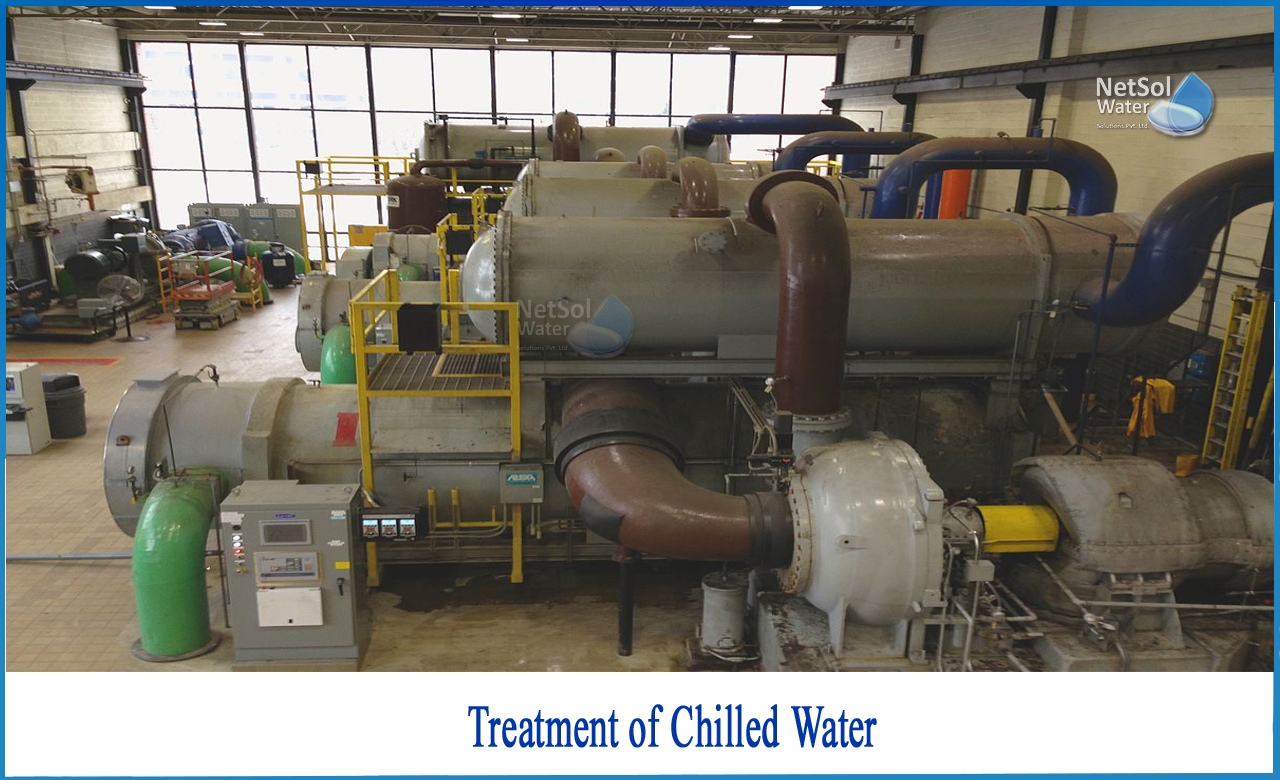Overview: Cooling towers
A device or a system comprised of many devices, is used to lower the temperature of a water stream by collecting heat from the water and releasing it to the atmosphere.
Currently, cooling towers are used in a variety of sectors, including:
i. Electro-Refrigeration Industry: Makes air conditioners and ice.
ii. Seafood Processing Industry: Makes seafood.
iii. Plastic industry: Helps with injection moulding or plastic packaging.
iv. Pharmaceutical industry: Maintaining medications at the appropriate temperature.
v. Metallurgical industry: Steel and aluminium cooling products.
vi. Electrical cable manufacturing.
vii. Other industries include: Electrical cables, ethanol manufacturing, and wastewater treatment.
Important cooling water parameters include-
Conductivity, total dissolved solids (TDS), hardness, pH, alkalinity, and saturation index are all important cooling water properties or parameters.
•Total conductivity and total dissolved solids (TDS): Conductivity is related to the quantity of dissolved solids (TDS) in water. Pure distilled water has very low conductivity (low mineral content), but sea water has a high conductivity (high mineral content).
The presence of minerals dissolved in water facilitates and the formation of insoluble mineral precipitates on the surface of heat transfer, are commonly referred to as "scale." Scale seeks to adhere to the surface, wreaking havoc on the pipe system and interfering with heat transmission and water pressure.
The primary goal of a nearly circulating water system is to reduce scale development. When determining TDS/conductivity, conductivity can be used as a controlling parameter.
• The pH of water is a measure of its acidity or basicity. The measurement scale runs from 0 to 14, with 7 being neutral. Controlling pH is critical for nearly all cooling water treatment procedures. In general, corrosion rises when the pH suggests an acidic environment, whereas scale forming capacity increases when the pH indicates an alkaline environment.
• Hardness: Water's "hardness" is determined by the quantity of calcium and magnesium dissolved in it. Total hardness is classified into two types: carbonate hardness, also known as temporary hardness, and non-carbonate hardness, also known as permanent hardness. Hardness, particularly transient hardness, is the most prevalent cause of calcium carbonate scale sedimentation in pipelines and equipment’s.
• Saturation index: The water saturation index, also known as the “Langlier Saturation index (LSI)”, is a measure of the stability of water in the process of scale development. Water tends to produce scale when LSI is positive, while water tends to erode when LSI is negative. The range of LSI from 0 to 1.0 is considered stable.
• Due to the high temperature of the condenser (40-42 °C), Ca ++ and Mg ++ ions in hard water quickly form hardened carbonate on the surface of the heat exchanger, reducing the heat transfer coefficient and increasing resistance force on pipes, resulting in a reduction in cooling system efficiency. Warm water in the cooling tower promotes the growth of seaweed, algae, and toxins, which pollute and diminish the capacity of the cooling system.
How do you treat chilled water?
There are various treatment techniques available to treat input water for the cooling system and reduce the danger of scale and algae blocking pipes and devices:
A: Water Softening: Treat input water by softening it, removing alkalis, and exchanging ions to eliminate minerals that cause scale in feed-water.
B: Reduce pH: In an acidic environment, scale formation capability will be reduced, implying a low pH concentration.
C:Use a chemical inhibitor of scale in the flowing water;
D: Limit the concentration process: This refers to limiting the concentration of the mineral that creates scale. Bottom discharge is used for this, which can be done on a regular or continuous basis. It entails purposefully washing off a portion of the water to prevent mineral conglomeration.
E:Filtration and rust removal are examples of physical therapy methods.
What do we have to offer?
We provide extremely precise solutions ranging from raw filtering to refining, water reuse for high-quality goods, water softening, reverse osmosis, anti-rust, corrosion, or microorganism elimination by electrolytic technology. These solutions may also be used to successfully treat the water in the central air conditioning system and boiler system.
Netsol Water is Greater Noida-based leading water & wastewater treatment plant manufacturer. We are industry's most demanding company based on client review and work quality. We are known as best commercial RO plant manufacturers, industrial RO plant manufacturer, sewage treatment plant manufacturer, Water Softener Plant Manufacturers and effluent treatment plant manufacturers. Apart from this 24x7 customer support is our USP. Call on +91-9650608473, or write us at enquiry@netsolwater.com for any support, inquiry or product-purchase related query.



